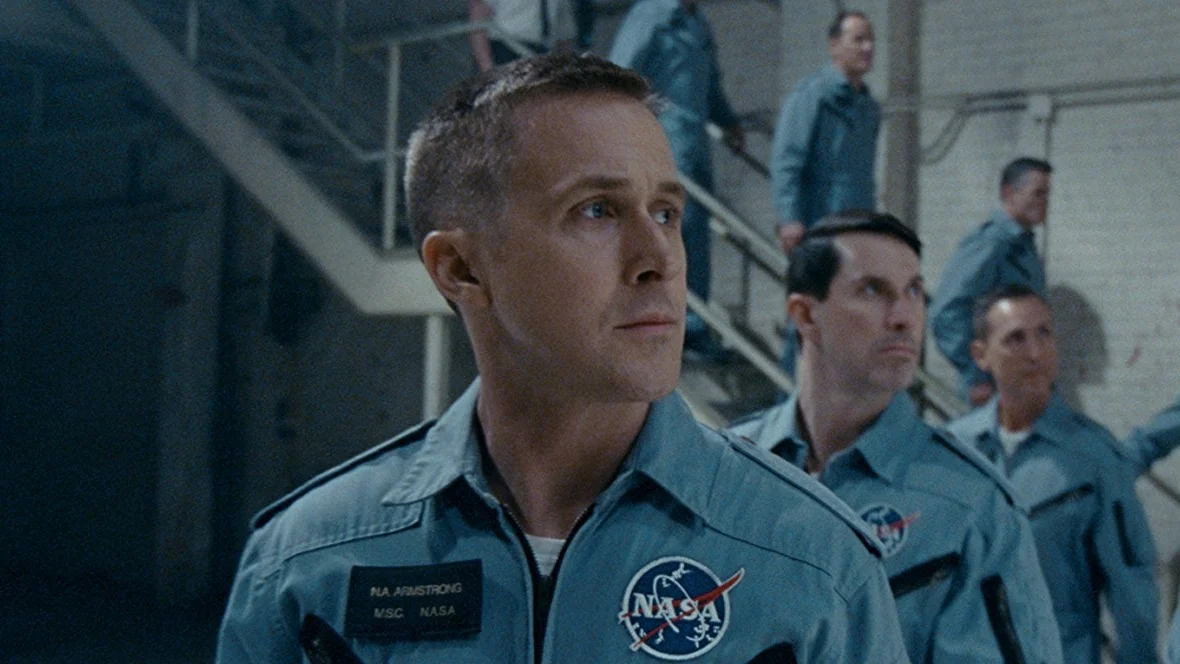Review: First Man
If you miss the train I'm on, you will know that I am gone
You can hear the whistle blow a hundred miles,
A hundred miles, a hundred miles, a hundred miles, a hundred miles,
You can hear the whistle blow a hundred miles.
Midway through Damien Chazelle’s epic Neil Armstrong biopic First Man, Peter, Paul, and Mary’s iconic lament chimes softly in the background. Mounting dangers and failed test runs have delayed and disturbed plans for a lunar landing. Janet Armstrong (Claire Foy) - Neil’s wife - holds steady like a rock, as does Neil (Ryan Gosling), but it’s clear from the start just how much anxiety is churning just beneath the surface. There’s a distance between the two, only accentuated by Neil’s goal. And, predictably, it’s the distance between Neil and his Earthbound problems that allows for the eventual catharsis.
If Neil’s narrative arc is slightly predictable, the cast, especially Claire Foy, turns their lungs blue blowing life into these scenarios. All the performers manage to breathe anxiety and tumult into scenes we know have to turn out one of a handful of ways due to simple history of the landing, the common denominator problem of historical biopics. But, Chazelle goes an extra step further and sells these dangers through stunningly realized cockpit views. The metallic carapaces of shaky rockets creak and moan awfully as they careen through air and space. And, in a very early scene in the film, Armstrong grazes the edge of the atmosphere floating on vapors and sunlight. It’s beautiful work, and these moments of quiet awe help elevate Chazelle’s film to extraordinary heights.
When the film is Earthbound, it’s considerably shakier. The scenes between Gosling’s Neil and Foy’s Janet are phenomenal, selling just how taxing the very real possibility that Neil would die in a burst of flame in front of the entire world was on their relationship and their family. And, in one of the film’s best scenes, Janet forces Neil to sit down and tell their sons about the very real dangers of his mission. But, Chazelle’s momentary dilations to examine the social tumult of the era feel underbaked and, at times, oddly belittling. It’s never a huge problem, and it’s clear that Chazelle meant to mirror the roiling political climate with the tension in space, but cutting between speeches about the very real struggles of the Civil Rights Movement and homelessness in America to the world as a tiny blue marble suspended in an ocean of blackness, somehow feels awkwardly minimizing.
First Man may not know quite what to do with the political messiness of an era of change and growth, but it manages to remind us just how unsure a thing the moon landing was in a time when this event has become so enshrined in our cultural imagination that it seems like a destined inevitability. It manages to paint the real-life superheroes of the late 60s as genuine, believable people with families and homes and bills to pay. Best of all, it manages to let us feel a shred of that awe for the grandeur of existence, not just as America, but as humankind.














